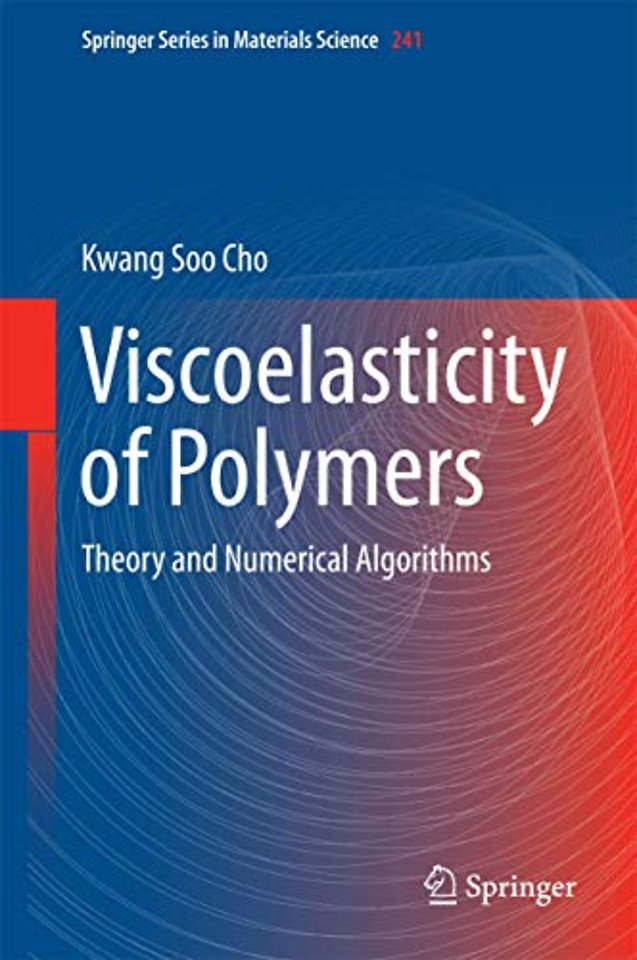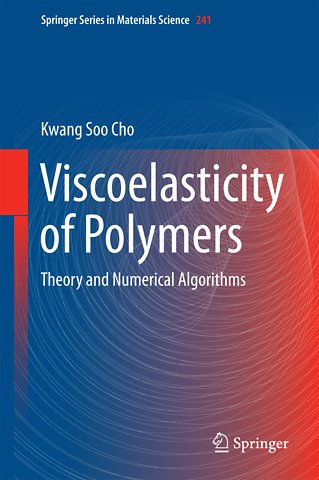Viscoelasticity of Polymers
Theory and Numerical Algorithms
Gebonden Engels 2016 9789401775625Samenvatting
This book offers a comprehensive introduction to polymer rheology with a focus on the viscoelastic characterization of polymeric materials. It contains various numerical algorithms for the processing of viscoelastic data, from basic principles to advanced examples which are hard to find in the existing literature. The book takes a multidisciplinary approach to the study of the viscoelasticity of polymers, and is self-contained, including the essential mathematics, continuum mechanics, polymer science and statistical mechanics needed to understand the theories of polymer viscoelasticity. It covers recent achievements in polymer rheology, such as theoretical and experimental aspects of large amplitude oscillatory shear (LAOS), and numerical methods for linear viscoelasticity, as well as new insights into the interpretation of experimental data.
Although the book is balanced between the theoretical and experimental aspects of polymer rheology, the author’s particular interest in the theoretical side will not remain hidden. Aimed at readers familiar with the mathematics and physics of engineering at an undergraduate level, the multidisciplinary approach employed enables researchers with various scientific backgrounds to expand their knowledge of polymer rheology in a systematic way.
Specificaties
Lezersrecensies
Inhoudsopgave
<p>1 Preliminary Mathematics.<br> 1 Vector Space. 2 Inner Product Space. 3 Coordinate System and Basis. 4 Vector Analysis. 5 Tensor Analysis. 6 Fourier and Laplace Transforms. References.</p>
<p>2 Continuum Thermo-Mechanics.<br> 7 Kinematics. 8 Balance Equations. 9 Classical Constitutive Equations. 10 Thermodynamics. 11 Principle of Constitutive Equation. References.</p>
<p>3 Statistical Mechanics.<br> 12 Probability Theory. 13 Equilibrium Statistical Mechanics. 14 Brownian Motion. References.</p>
<p>4 Polymer Physics.<br> 15 Polymer Structure. 16 Chain Conformation and Size of Polymer Chain. 17 Polymer Solution. 18 Rubber Elasticity. References.</p>
<p>II Linear Viscoelasticity.</p>
<p>5 Theory of Linear Viscoelasticity.<br> 19 Fundamental Theory. 20 Measurement of Linear Viscoelasticity. 21 Phenomenological Models. 22 Molecular Theories. References.</p>
<p>6 Numerical Methods.<br> 23 Polynomial Regression. 24 Nonlinear Regression. 25 Padé Approximation. 26 Numerical Integration and Differentiation. 27 Discrete Fourier Transform. References.</p>
<p>7 Viscoelastic Spectrum.<br> 28 Fundamentals. 29 Algorithms for Continuous Spectrum. 30 Algorithms for Discrete Spectrum. References.</p>
<p>8 Time-Temperature Superposition.<br> 31 Fundamentals of TTS. 32 Geometric Interpretation. 33 Algorithms for TTS. References.</p>
<p>9 Applications to Polymer Systems.<br> 34 Inter-conversion of Various Experimental Data. 35 Polymer Melts and Solutions. 36 Immiscible Blend of Polymers. References.</p>
<p>III Nonlinear Viscoelasticity.</p>
<p>10 Nonlinear Constitutive Equations. 37 Rheometrics. 38 Models Based on Expansion. 39 Generalization of Linear Viscoelastic Models. 40 Models Based on Speculation of Structure. 41 Thermodynamic Theory. References.</p>
<p>11 Large Amplitude Oscillatory Shear.<br> 42 Introduction to LAOS. 43 Methods of Analysis. 44 Analytical Solution of LAOS. 45 Semi-Analytical Method for LAOS. References.</p>
<p>Appendix. <br> Functional Derivative.</p>
<p>Subject Index.</p>
Rubrieken
- advisering
- algemeen management
- coaching en trainen
- communicatie en media
- economie
- financieel management
- inkoop en logistiek
- internet en social media
- it-management / ict
- juridisch
- leiderschap
- marketing
- mens en maatschappij
- non-profit
- ondernemen
- organisatiekunde
- personal finance
- personeelsmanagement
- persoonlijke effectiviteit
- projectmanagement
- psychologie
- reclame en verkoop
- strategisch management
- verandermanagement
- werk en loopbaan

